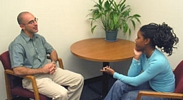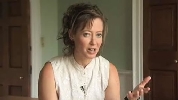You Don't Have to Have an Estate to Have an Estate Plan
A Cautionary Tale
I recently had a daughter call about bringing her mother to me to draw up a trust. I questioned why the mother wasn't calling me herself which should have happened since the mother, not the daughter, would be my client. I asked the daughter some typical screening questions over the phone to gain an understanding of how lucid her mother was. The daughter assured me that though her mother was aging, she was able to execute legal documents.
Once they arrived at my office, I quickly realized that the mother was so far down the road to total dementia that she did not even know the names of her children, let alone what she was going to leave to them. The mother was no longer legally eligible to make a legal document. Short of spending thousands of dollars in legal costs to establish a conservatorship, there is no remedy for someone who waits too long and has lost mental capacity without making an estate plan.
If you love them, don't make them go through probate
In the scenario described above, rather than developing a simple trust and back-up Will that would have cost less than a couple of thousand dollars, the woman's estate will have to pass to her children by way of an expensive and time-consuming process called probate.
A big irony is that people may be reluctant to incur legal fees to make an estate plan. The reality is that having an estate plan virtually always reduces legal costs, by magnitudes. Probate, which is required if an estate has a fair market value of $100,000 or more (excluding assets such as retirement accounts if they have designated beneficiaries) results in large fees for executors and their attorneys, based on a formula set forth in the California Probate Code, which is the law governing estate administration. Even with a Will, if the estate is worth more than the $100,000 threshold, probate is likely. Probate takes a huge bite out of an inheritance, and it can easily be avoided.
Anyone who owns property should have an estate plan
An estate plan is really quite simple: it involves written documents stating one's wishes for how property should be distributed after one's death. Property includes real estate and also liquid assets such as cash and securities, plus all the tangible items one has. Even if all you have is a shoebox with your coin collection stored under your bed, you need a written document stipulating how your belongings will be distributed. Even more importantly, regardless of the size of your estate, you need a Durable Power of Attorney and an Advance Health Directive in which you nominate your financial affairs and medical decisions if you are ever unable to do this for yourself due to illness, injury or just plain old age.
Barriers to estate planning
Many factors prevent people from making an estate plan while they are well and have their wits about them. For some, it's procrastination. For others, it's denial of the inevitability of old age, illness and death. For many, the dynamics of their families are so complex that it is easier to put off making difficult decisions. In the current economy, many people would prefer not to think about what has happened to their finances. Their estates have, indeed, been diminished by layoffs and furloughs.
An acquaintance who was the advertising director for a major bank is now living off what is left of his daughter's college fund. He has no interest in making plans for what is left of his estate or thinking about retirement because he can't see how he will ever be able to retire, and at the moment he's more worried about whether or not his wife is going be laid off. For this gentleman and others, there's a perception that because his estate is diminished, he has no need for an estate plan. This perception is a misperception.
Your nest egg may be smaller than it used to be, but you still have an estate
An "estate" doesn't have to include a stable and tennis courts. For most people, it certainly does not. An estate includes your home in which you've built up equity, your vehicles, jewelry, artwork, your 401(k) and other investments. It includes items that may have little monetary value but a lot of sentimental value. Funny things happen to families when someone dies. Make sure that you have been proactive in creating the necessary estate planning documents so that your property is distributed to your friends and family as per your instructions, avoiding the rancor that accompanies the death of a family member.
Most people die without a Will
This is shocking, but true. It can leave a terrible mess for families, and it can easily be prevented. A Will alone can be as simple as a holographic Will, written in one's own handwriting. Or an attorney can advise on the making of a Will and a trust if necessary. When someone does die without even a basic Will, their property does not go to the government as many people think. Rather, the state of California, like all the other states, has a Probate Code in which the government has made a law based on what most people would want to have happen to their property.
Property acquired during marriage goes to a spouse. For those who are not married but have children, the estate is divided equally among them. If one has no spouse or children, one's property goes to parents, siblings or other relatives. If it is your desire to leave property to friends or a charity, that needs to be documented.
Don't wait until dementia incapacitates you or a member of your family
If you do not have an estate plan already in place when you are no longer able to make decisions for yourself, someone may need to go to court and petition to become your conservator. A conservatorship, like probate, is very expensive and preventable. A conservatorship is a failure of estate planning. It means someone other than a person of your choice may end up managing your finances and personal care.
Be proactive
As an estate planning attorney, I see many scenarios where people wait too long and become physically or mentally unable to make decisions about how their estates will be administered. Making plans while you are still able is a gift to those you love.
About Sara
Sara R. Diamond, Ph.D. is an estate planning, probate and trust administration attorney in downtown Berkeley, CA. She earned her law degree from UC Hastings College of the Law and her Ph.D. in Sociology from UC Berkeley. She formerly taught sociology and journalism and has more recently taught elder law at JFK University School of Law and UC Berkeley's School of Social Welfare. She is skilled at communicating complex concepts in a manner that is easy for audiences to understand.
Something you may not know about Sara: prior to shifting to the field of law, Sara was also a long-time investigative journalist who published four ground-breaking books about the Christian Right and similar movements in the U.S. She speaks Spanish and has lived in the Bay area for 30 years.



